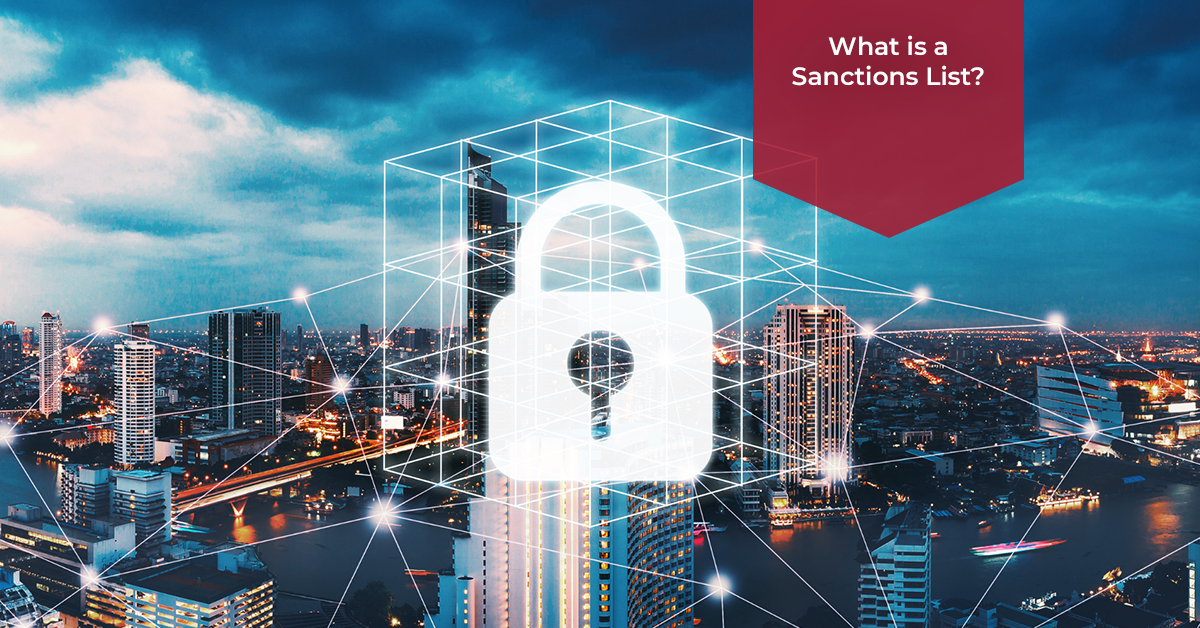
What is a Sanctions List?
A Sanctions List comprises individuals, companies, or countries subjected to restrictive measures due to connections with terrorism, weapons proliferation, or other illicit activities. The goal is to block assets and restrict trade for foreign policy and national security objectives. In the fight against financial crime, companies use sophisticated sanction screening software during customer onboarding and periodic reviews to ensure compliance. This involves through checks against the list to identify and mitigate risks associated with sanctioned entities.
Sanctions Lists are pivotal in the fight against financial crime, as they limit entities engaged in illicit activities. Companies ensure compliance by incorporating sanction controls during customer onboarding and regular reviews. They utilize sophisticated screening software for risk assessment, consistently monitoring their compliance status with vigilance.
The existence of a Sanction List is crucial for preventing financial crimes and ensuring adherence to AML regulations. To align with global legal standards, businesses must consistently refresh their understanding of entities subject to sanctions. Transactions involving blocked persons are strictly prohibited, and companies not adhering to these restrictions may face severe consequences, including asset freezes and travel bans. Employing AML compliance software streamlines screenings, reducing staff workload.
Sanctions are also imposed for political reasons during periods of conflict between countries. Notable instances include the US’s sanctions on Iran in 1979 and on North Korea in 1950. In 2022, various nations imposed sanctions on Russia due to the Russian-Ukrainian War, resulting in restricted access to financial markets, blocked assets, and disrupted business operations. Staying informed about sanctioned entities and utilizing effective screening software is crucial for companies to navigate evolving lists and ensure compliance with international laws.
What are the Sanction Lists?
Sanction Lists, maintained by governments and financial authorities globally, serve as comprehensive compilations of entities subject to various restrictive measures. Sanction Lists are integral components of global initiatives to counter illicit activities and uphold financial stability. Prominent instances encompass the United Nations Sanctions (UN), US Consolidated Sanctions, and the Office of Foreign Assets Control (OFAC) Specially Designated Nationals (SDN) list. These lists specifically aim at entities engaged in activities like terrorism, arms proliferation, or various forms of misconduct, contributing significantly to international endeavors in preventing financial crimes.
These lists extend beyond national boundaries, with entities like the EU Financial Sanctions, UK Financial Sanctions (HMT), and Australian Sanctions reflecting collaborative international efforts. Additionally, specialized lists such as the Interpol Wanted List and CIA World Leaders Pep List focus on individuals wanted for various reasons. The variety of these lists highlights the worldwide dedication to combating financial crimes and upholding adherence to international regulations.
Why Sanction Screening is Needed?
Sanction screening, an essential element of AML compliance software, is critical for businesses to sidestep legal and financial penalties related to AML non-compliance. By verifying customers and transactions against global lists, including those managed by entities such as the United Nations, the European Union, and the U.S. Office of Foreign Assets Control (OFAC), companies ensure the avoidance of restricted individuals, entities, or nations. AML violations can result in substantial fines, making automated screening solutions indispensable.
These technologies streamline the process, reducing errors, saving time, and shielding businesses from reputational damage linked to entities on sanction lists. Choosing providers offering comprehensive global list coverage and up-to-date software is essential for effective compliance and risk mitigation. In essence, sanction screening software is pivotal for businesses in achieving compliance goals and averting associated legal, financial, and reputational risks.

